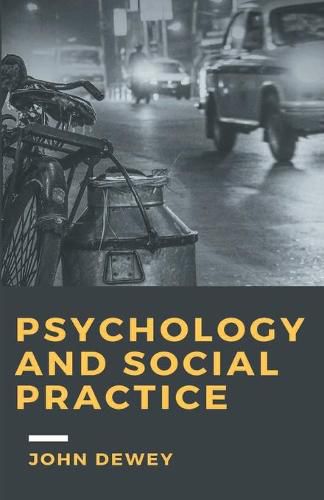Readings Newsletter
Become a Readings Member to make your shopping experience even easier.
Sign in or sign up for free!
You’re not far away from qualifying for FREE standard shipping within Australia
You’ve qualified for FREE standard shipping within Australia
The cart is loading…






This title is printed to order. This book may have been self-published. If so, we cannot guarantee the quality of the content. In the main most books will have gone through the editing process however some may not. We therefore suggest that you be aware of this before ordering this book. If in doubt check either the author or publisher’s details as we are unable to accept any returns unless they are faulty. Please contact us if you have any questions.
In this address to the American Psychological Association, the President examines the relation of psychology to social practice, focusing primarily on the relation of psychology to education. The main point is whether the standpoint of psychological science, as a study of mechanism, is indifferent and opposed to the demands of education with its free interplay of personalities in their vital attitudes and aims. The psychologist, in his most remote and technical occupation with mechanism, is contributing his bit to the ordered knowledge which alone enables mankind to secure a larger and to direct a more equal flow of values in life.
$9.00 standard shipping within Australia
FREE standard shipping within Australia for orders over $100.00
Express & International shipping calculated at checkout
This title is printed to order. This book may have been self-published. If so, we cannot guarantee the quality of the content. In the main most books will have gone through the editing process however some may not. We therefore suggest that you be aware of this before ordering this book. If in doubt check either the author or publisher’s details as we are unable to accept any returns unless they are faulty. Please contact us if you have any questions.
In this address to the American Psychological Association, the President examines the relation of psychology to social practice, focusing primarily on the relation of psychology to education. The main point is whether the standpoint of psychological science, as a study of mechanism, is indifferent and opposed to the demands of education with its free interplay of personalities in their vital attitudes and aims. The psychologist, in his most remote and technical occupation with mechanism, is contributing his bit to the ordered knowledge which alone enables mankind to secure a larger and to direct a more equal flow of values in life.